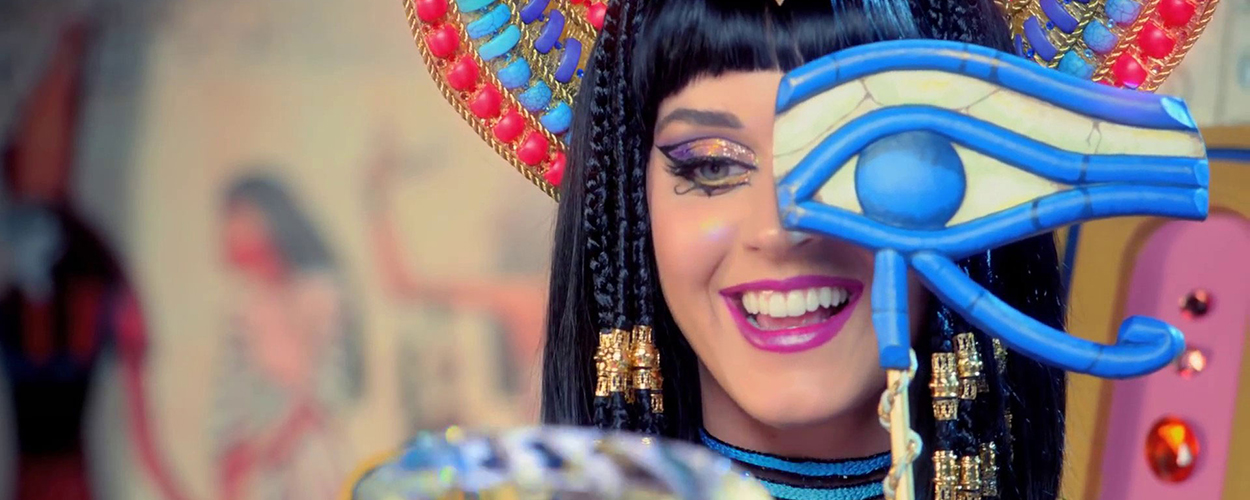This website uses cookies so that we can provide you with the best user experience possible. Cookie information is stored in your browser and performs functions such as recognising you when you return to our website and helping our team to understand which sections of the website you find most interesting and useful.
Artist News Business News Labels & Publishers Legal Top Stories
Dark Horse litigation back in court, but judges cautious of over-extending copyright
By Chris Cooke | Published on Wednesday 12 January 2022

Judges in the US Ninth Circuit appeals court maintained their skeptical position yesterday regarding extending copyright protection to short segments of music. Or at least that’s how it seemed as Christian rapper Marcus Gray tried to persuade them to overturn a lower court judgement in his song theft legal battle with Katy Perry.
Gray accuses Perry and her collaborators of ripping off his song ‘Joyful Noise’ on her 2013 hit ‘Dark Horse’. The two songs both contain the same repeating ostinato, described by the Perry side in previous legal filings as “merely two pitches that repeat – a C and B note – on evenly spaced notes, in a sparse setting, played on a synthesiser”.
At first instance, Gray was successful in convincing a jury that, by borrowing the ostinato, ‘Dark Horse’ infringed the ‘Joyful Noise’ copyright. And, as a result, Perry and her songwriting pals were ordered to pay Gray and his team $2.8 million in damages.
However, the judge overseeing the original case – Christina Snyder – then overturned the jury’s decision. That was on the basis that the Gray side’s arguments that the shared ostinato was protected by copyright in isolation failed as a matter of law.
Synder’s March 2020 decision came shortly after the Ninth Circuit’s landmark ruling on the ‘Stairway To Heaven’ song-theft case, which arguably set a precedent on the copyright status of short musical segments, concluding they don’t usually have copyright protection.
Perry’s team had used that ‘Stairway’ judgement to bolster their case for why Snyder should overturn the jury’s conclusion, stating that that Ninth Circuit decision provided “an extended defence of why copyright law doesn’t cover ‘common musical elements’ and basic ‘building blocks’”, because doing so “might ‘curtail the creation of new works’”.
Nevertheless, Gray decided to appeal to the Ninth Circuit court, arguing that the jury got it right in his specific song-theft dispute, and that Synder should not have interred in their ruling. Both sides were questioned by the Ninth Circuit judges in relation to that appeal yesterday.
Legal reps for Gray told the appeal judges that the jury had seen extensive evidence and heard detailed expert testimony during the original hearing in the lower court, and therefore Synder was wrong to then simply ignore their conclusion.
However, the appeal judges mused, when it comes to the so called ‘extrinsic test’ in copyright cases – which includes identifying what elements of a work are not actually protected by copyright in isolation – judges rather than juries are the key decision makers.
According to Billboard, appeal judge Milan Smith noted: “It seems to me that the case law says that we as judges are fully authorised and empowered – and indeed required – to examine the extrinsic test ourselves”.
Conceding that was true, Gray’s legal rep then honed in on Synder’s application of the extrinsic test and her scrutinising of the evidence. There, he said, the lower court judge had made a number of errors.
In particular, he said, Synder failed to consider the ‘qualitative importance’ of the musical segment ‘Joyful Noise’ and ‘Dark Horse’ share, which can impact on whether there is a case for saying one work infringes another.
He then noted how, when performing ‘Dark Horse’ at the 2015 Super Bowl halftime show, Perry had skipped the intro of the song and immediately kicked off the proceedings with the ostinato.
By her own admission, he added, that was because the ostinato is the most identifiable part of the song. Though, Perry’s legal rep countered, his client meant that the chorus was the most identifiable part of the song, which includes the ostinato, but other elements too.
Whether arguments like that will help Gray’s side get the case reinstated remains to be seen. But other comments made during yesterday’s hearing suggested that – as with the ‘Stairway To Heaven’ case – the Ninth Circuit is cautious about over extending copyright protection.
Another judge, Richard R Clifton, although admitting he’s no expert on modern pop music, said it had taken him several listens of the two songs to “figure out exactly what the purported similarities were. After the first couple listens, I really had to focus to try [to] figure out what little short segment matches in the same way. It took enough work that I began to wonder: ‘how exactly does that become something protectable?’”





